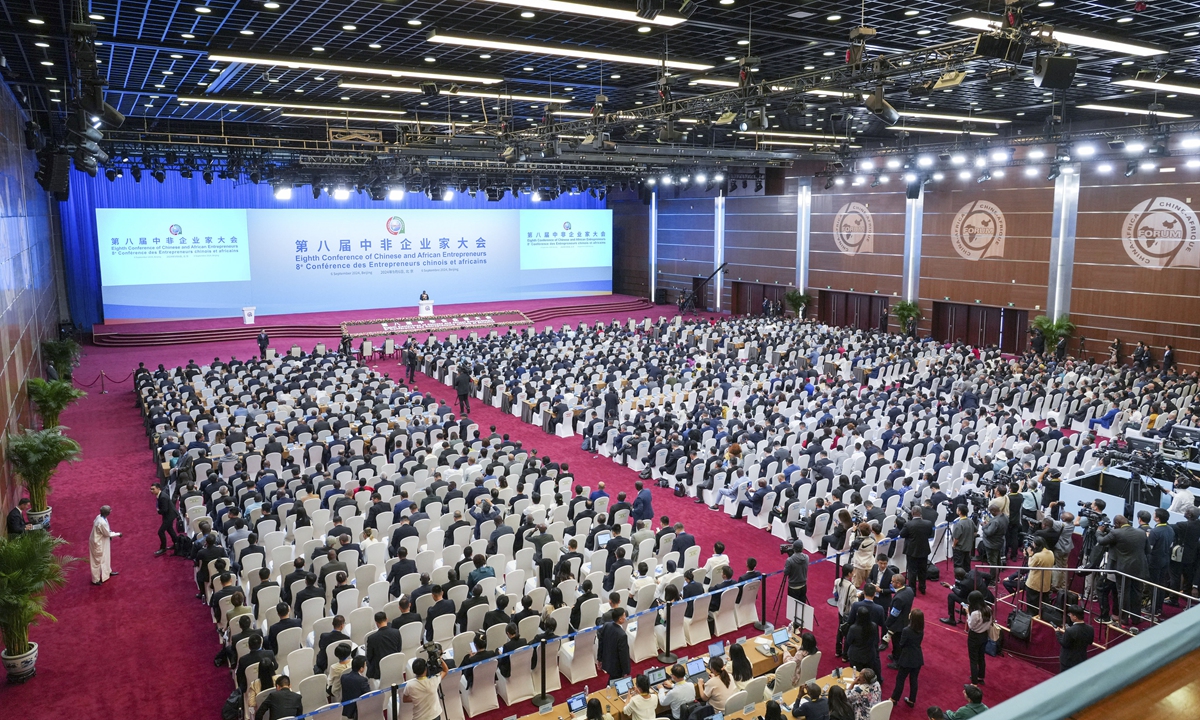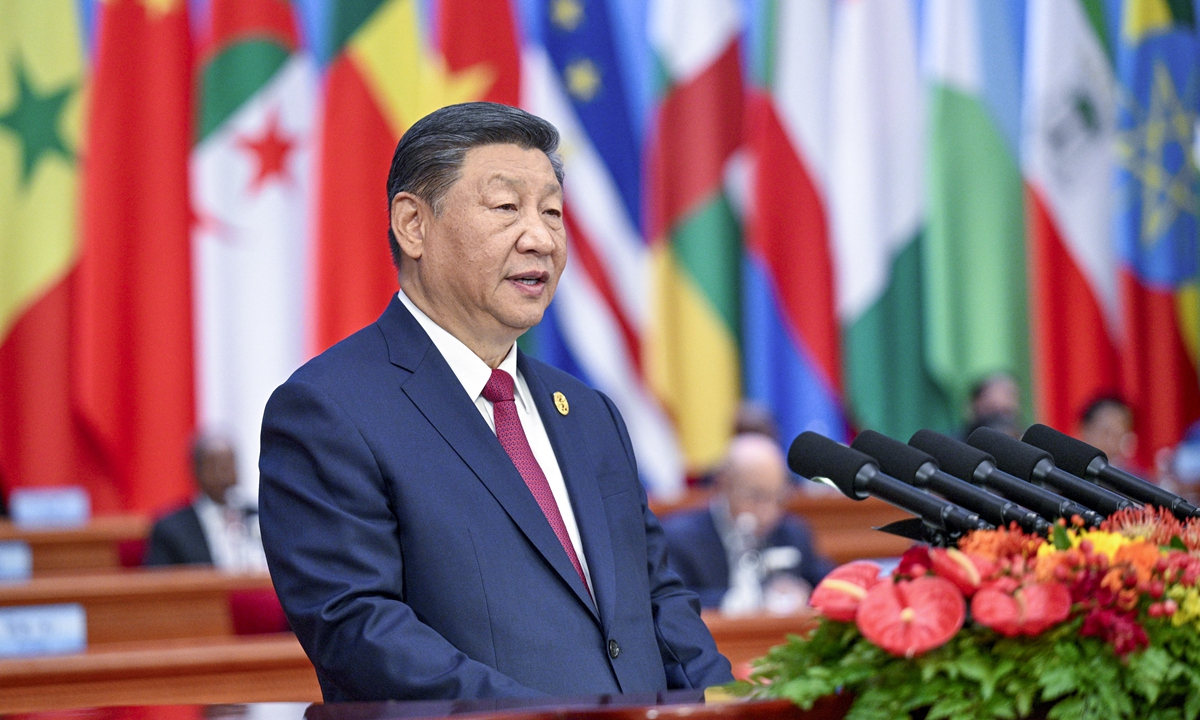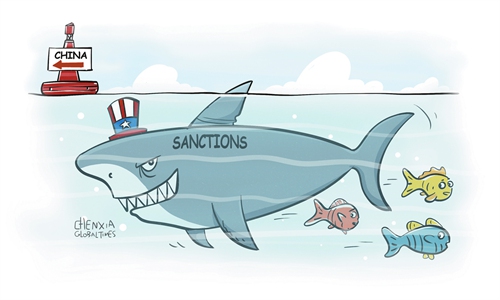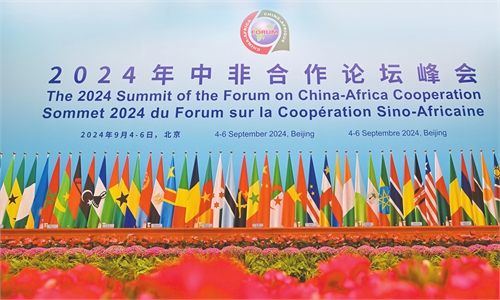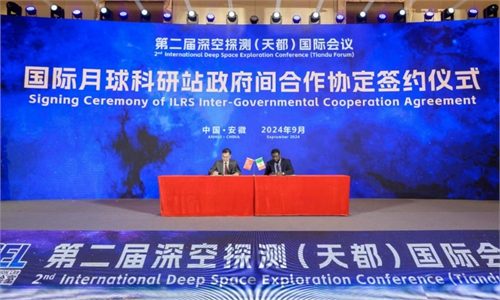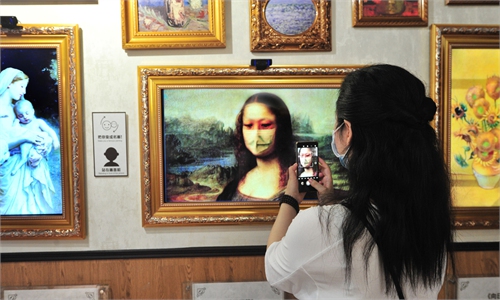Leaders hold summit on deepening ties in a divided world
Strong bonds: African leaders applauding Xi (centre) after his speech at the opening ceremony of the Forum on China-Africa Cooperation in Beijing’s Great Hall of the People. — AFPDozens of African leaders gathered in Beijing for a summit that signals China’s influence in a continent that it hopes will be a key ally in pushing back against a US-led global order.
Chinese President Xi Jinping promised the leaders billions of dollars in loans and private investment over the next three years and proposed that relations with all African countries that have diplomatic ties with China be elevated to the “strategic” level.
“We have always supported each other, setting an example for new international relations,” he said at the opening of the Forum on China-Africa Cooperation.
Since the forum’s inception in 2000, China has become a major player in Africa, investing in mining, infrastructure and development under Xi’s Belt and Road initiative.
African leaders, while welcoming China’s support, are pushing for aid that aligns with their goals of industrialisation and expanding agricultural exports to address trade deficits.
Xi outlined 10 “partnership actions” that included training for African politicians and future leaders, a further opening of the Chinese market, agriculture demonstration areas, vocational and technical training, green energy projects and 1 billion yuan (RM608mil) in military grants.
“While commending the overall progress so far achieved, we also appreciate the announcement of further areas of partnership actions,” said Tanzania’s President, Samia Suluhu Hassan, speaking on behalf of eastern Africa.
“We salute a new characterisation of China-Africa relations.”
Xi said China would eliminate tariffs on products from most of the world’s poorest countries, including 33 in Africa, in an expansion of existing tariff exemptions.
The relationship has moved beyond trade and investment to take on political overtones as China seeks allies in Africa and elsewhere to define the norms governing global economy and how countries interact with each other. — AP
Related Stories
The 2024 Summit of the Forum on China-Africa Cooperation (FOCAC) concluded in Beijing on Friday with significant achievements made. In ...
Chinese President Xi Jinping on Thursday said that China stands ready to work with Africa to implement 10 partnership actions ...
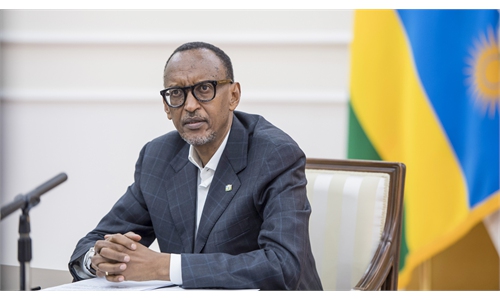
- Partnership with China built on 'mutual respect, shared interests'
Rwanda, like many other African countries, values its partnership with China, which is based on mutual respect and shared interests; ...
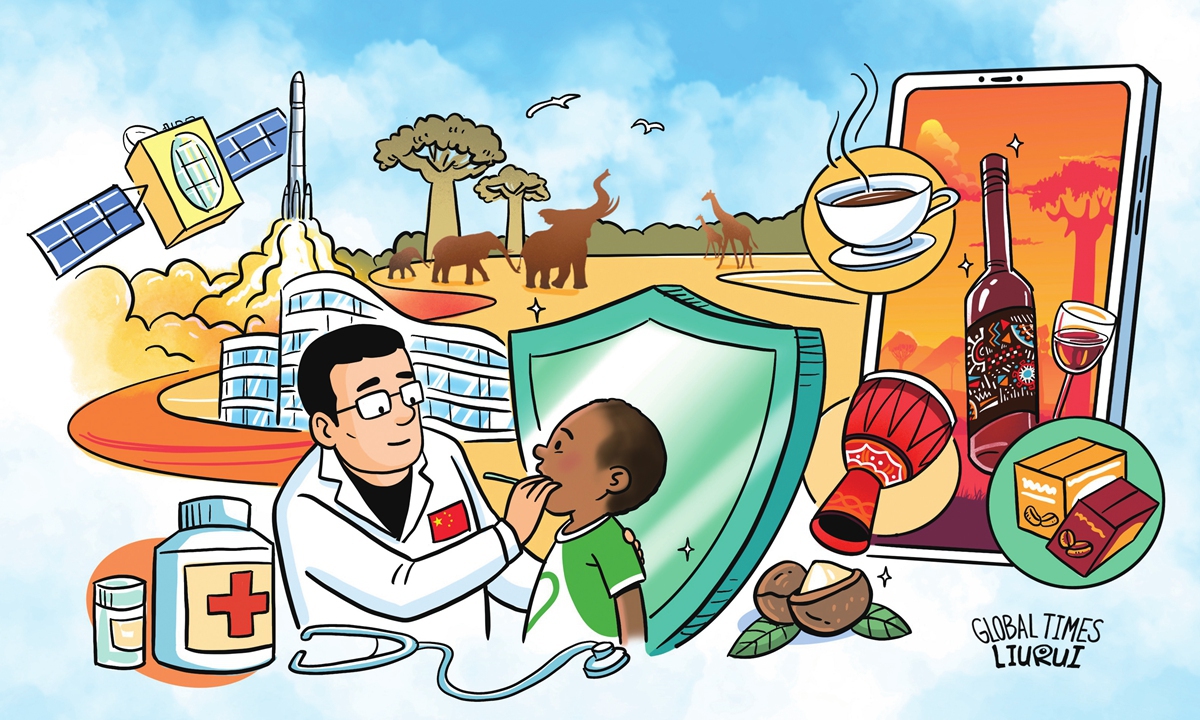 The momentum of China-Africa joining hands to advance modernization is boundless: Global Times editorial
The momentum of China-Africa joining hands to advance modernization is boundless: Global Times editorialIf China-Africa cooperation can carve out a new path for South-South cooperation, it would be a tremendous encouragement for countries in the Global South. This would provide a fresh perspective on addressing global development issues and has positive implications for demonstration and promotion.
Although the US has been trying hard to restrict China's high-tech development even at the expense of its allies' interests and the global supply chain, it not only hasn't achieved its desired outcome, but only to find itself surrounded by ...
GLOBAL MINDSMany African countries have long been dependent on Western loans and aid, but these resources have not significantly improved their economic growth. In contrast, China-Africa cooperation focuses on infrastructure, which is crucial for development and modernization.
EDITOR'S PICK'It is crucial to tell the real China-Africa story'We need to communicate better and more effectively to convey the real story. It is the people who will defend the relationship between our countries for a long time to com
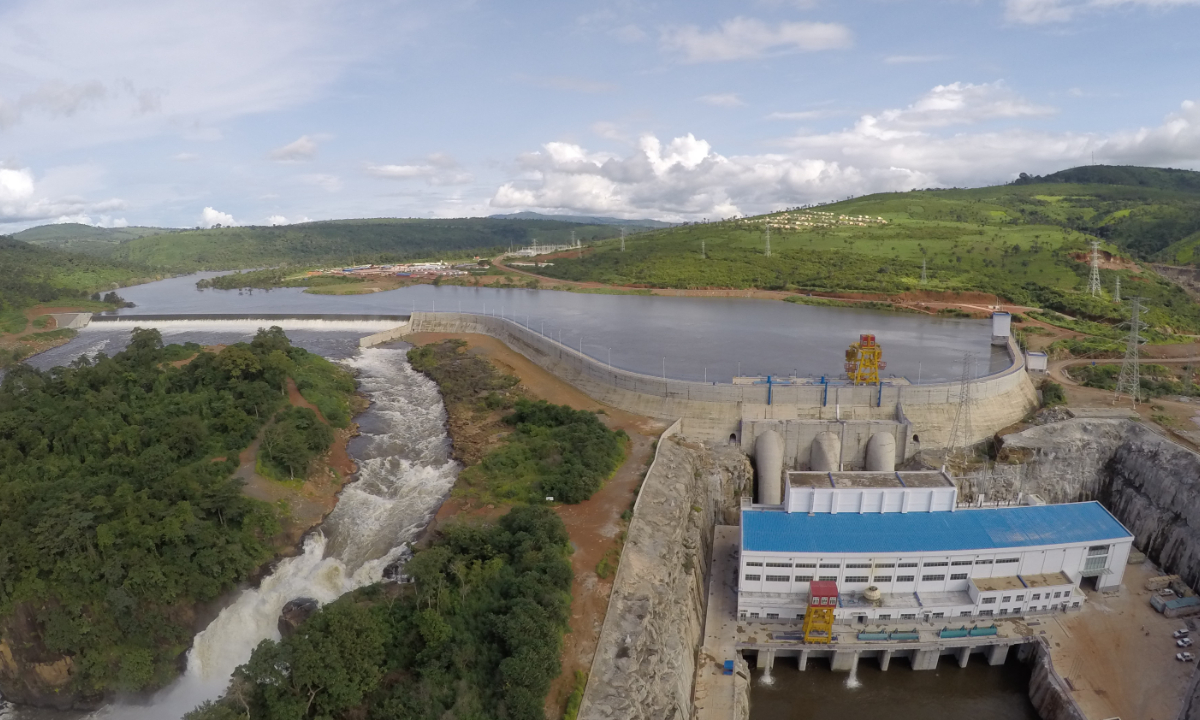 China-Africa cooperation projects imprinted on African currencies
China-Africa cooperation projects imprinted on African currenciesIn many African countries, the designs on their currency showcase the historical, cultural and social development achievements of the nation. From rice paddies to hydroelectric plants, from bridges to skyscrapers, several iconic achievements of China-Africa cooperation are imprinted on the ...
Botswana delegate at FOCAC dismisses Western smearing, calls for Chinese expertise in modernizing Africa's developmentOtsile Morake, a PhD student at Jiangsu University from Botswana and President of the Botswana Expatriates in China (BECO), is marking his 11th year in China with a sense of awe. Invited by the government of Botswana to attend this ...
e
 Strong bonds: African leaders applauding Xi (centre) after his speech at the opening ceremony of the Forum on China-Africa Cooperation in Beijing’s Great Hall of the People. — AFP
Strong bonds: African leaders applauding Xi (centre) after his speech at the opening ceremony of the Forum on China-Africa Cooperation in Beijing’s Great Hall of the People. — AFPDozens of African leaders gathered in Beijing for a summit that signals China’s influence in a continent that it hopes will be a key ally in pushing back against a US-led global order.
Chinese President Xi Jinping promised the leaders billions of dollars in loans and private investment over the next three years and proposed that relations with all African countries that have diplomatic ties with China be elevated to the “strategic” level.
“We have always supported each other, setting an example for new international relations,” he said at the opening of the Forum on China-Africa Cooperation.
Since the forum’s inception in 2000, China has become a major player in Africa, investing in mining, infrastructure and development under Xi’s Belt and Road initiative.
African leaders, while welcoming China’s support, are pushing for aid that aligns with their goals of industrialisation and expanding agricultural exports to address trade deficits.
Xi outlined 10 “partnership actions” that included training for African politicians and future leaders, a further opening of the Chinese market, agriculture demonstration areas, vocational and technical training, green energy projects and 1 billion yuan (RM608mil) in military grants.
“While commending the overall progress so far achieved, we also appreciate the announcement of further areas of partnership actions,” said Tanzania’s President, Samia Suluhu Hassan, speaking on behalf of eastern Africa.
“We salute a new characterisation of China-Africa relations.”
Xi said China would eliminate tariffs on products from most of the world’s poorest countries, including 33 in Africa, in an expansion of existing tariff exemptions.
The relationship has moved beyond trade and investment to take on political overtones as China seeks allies in Africa and elsewhere to define the norms governing global economy and how countries interact with each other. — AP
Related Stories
The 2024 Summit of the Forum on China-Africa Cooperation (FOCAC) concluded in Beijing on Friday with significant achievements made. In ...
Chinese President Xi Jinping on Thursday said that China stands ready to work with Africa to implement 10 partnership actions ...

- Partnership with China built on 'mutual respect, shared interests'
Rwanda, like many other African countries, values its partnership with China, which is based on mutual respect and shared interests; ...
 The momentum of China-Africa joining hands to advance modernization is boundless: Global Times editorial
The momentum of China-Africa joining hands to advance modernization is boundless: Global Times editorialIf China-Africa cooperation can carve out a new path for South-South cooperation, it would be a tremendous encouragement for countries in the Global South. This would provide a fresh perspective on addressing global development issues and has positive implications for demonstration and promotion.
Although the US has been trying hard to restrict China's high-tech development even at the expense of its allies' interests and the global supply chain, it not only hasn't achieved its desired outcome, but only to find itself surrounded by ...
GLOBAL MINDSMany African countries have long been dependent on Western loans and aid, but these resources have not significantly improved their economic growth. In contrast, China-Africa cooperation focuses on infrastructure, which is crucial for development and modernization.
EDITOR'S PICK'It is crucial to tell the real China-Africa story'We need to communicate better and more effectively to convey the real story. It is the people who will defend the relationship between our countries for a long time to com
 China-Africa cooperation projects imprinted on African currencies
China-Africa cooperation projects imprinted on African currenciesIn many African countries, the designs on their currency showcase the historical, cultural and social development achievements of the nation. From rice paddies to hydroelectric plants, from bridges to skyscrapers, several iconic achievements of China-Africa cooperation are imprinted on the ...
Botswana delegate at FOCAC dismisses Western smearing, calls for Chinese expertise in modernizing Africa's developmentOtsile Morake, a PhD student at Jiangsu University from Botswana and President of the Botswana Expatriates in China (BECO), is marking his 11th year in China with a sense of awe. Invited by the government of Botswana to attend this ...
e

